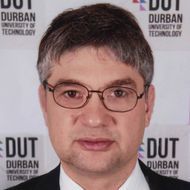- A
- A
- A
- ABC
- ABC
- ABC
- А
- А
- А
- А
- А
- HSE University
- Faculties
- Faculty of World Economy and International Affairs
- School of International Affairs
- Events
- Seminar “How will India manage its multi-alignment approach?”
-
The School
17/1 Malaya Ordynka Str., Moscow, 119017
Likhacheva A., Strelnikova I., Kharina O. et al.
M.: CCEIS of HSE University, 2024.
Strelnikova I., Chistikov M., Shuranova A.
Russia in Global Affairs. 2025. Vol. 23. No. 2. P. 23-37.
Korneev O., Kluczewska K.
In bk.: EU–Central Asian Interactions: Perceptions, Interests and Practices. Abingdon: Routledge, 2024. Ch. 3. P. 38-58.
In press
Romain D.
International Relations. IR. Издательский дом НИУ ВШЭ, 2023

Seminar “How will India manage its multi-alignment approach?”
India in its current avatar enjoys a unique position in international affairs. It is simultaneously a regional leader in South Asia and a middle power in world affairs. It is still a developing country with significant economic challenges ahead, but also possesses immense potential to emerge as a future global power. As it navigates an increasingly unstable world order to advance its interests and take its rightful place at the decision-making table, Indian diplomacy has long mastered the art of walking the tightrope in maintaining cordial relations with major powers across the proverbial divide in the current international system. But as geopolitical rivalries deepen amidst a world order in flux, how does India manage its foreign policy to both preserve its national interests and further its position in this system? What are the benefits, challenges, and contradictions of following a multi-alignment policy; and what does the future hold for this long-held principle of Indian foreign policy? Is there any scope for changes in India’s long-standing approach of pursuing strategic autonomy?
Keynote speaker: Ambassador P.S. Raghavan, Distinguished Fellow, Vivekananda International Foundation (VIF), New Delhi.
Ambassador Raghavan is a career diplomat, who has also served (2016-20) as Chairman of the National Security Advisory Board (NSAB), which advises India’s National Security Council on strategic and security issues.
As a diplomat for over 36 years, he served as India’s Ambassador to Russia (2014-16), Czech Republic (2004-07) and Ireland (2007-11), and held other diplomatic positions in USSR, Poland, UK, Vietnam and South Africa.
He was Joint Secretary [Director General] in the Prime Minister's Office (2000-2004) dealing with foreign affairs, nuclear energy, space, defence and national security, during a period of transformation in India’s foreign and national security policies.
As Secretary [Deputy Foreign Minister] in the Ministry of External Affairs (MEA), he handled India’s external economic relations and oversaw Administration, Security and e-governance. He also headed the Development Partnership Administration, which coordinates India’s economic partnership programme in developing countries, with an annual budget of US $1-1.5 billion.
He was Chief Coordinator of the BRICS Summit in New Delhi (2012). In 2012 and 2013, he was Special Envoy of India to Sudan and South Sudan.
As Chairman NSAB, he engaged with government departments and think tanks in India and outside on India’s strategic perspectives. He writes and lectures widely on these issues.
He has been a Distinguished Fellow of VIF since 2021.
The seminar will be held in English via MS Teams. Please register here - https://fakultet-mirovoy-ek-event.timepad.ru/event/2003235/
- About
- About
- Key Figures & Facts
- Sustainability at HSE University
- Faculties & Departments
- International Partnerships
- Faculty & Staff
- HSE Buildings
- Public Enquiries
- Studies
- Admissions
- Programme Catalogue
- Undergraduate
- Graduate
- Exchange Programmes
- Summer Schools
- Semester in Moscow
- Business Internship
-
https://elearning.hse.ru/en/mooc/
Massive Open Online Courses
-
https://www.hse.ru/en/visual/
HSE Site for the Visually Impaired
-
http://5top100.com/
Russian Academic Excellence Project 5-100
- © HSE University 1993–2025 Contacts Copyright Privacy Policy Site Map
- Edit

